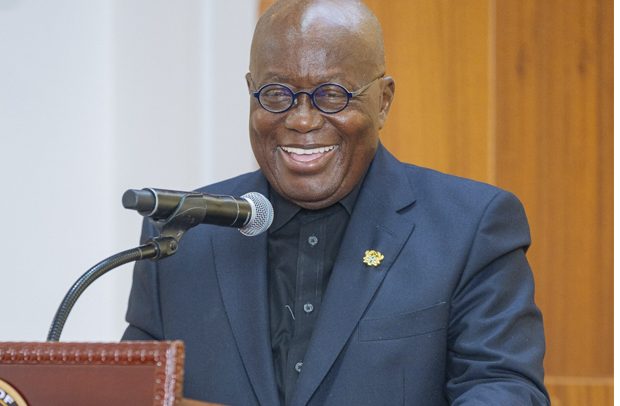President Akufo-Addo
President Akufo-Addo has issued a stern warning to heads of State Owned Enterprises (SOEs) who have not submitted their audited financial reports for the year 2023.
He has, therefore, asked them to do so by submitting the reports to the State Interest and Governance Authority (SIGA) by May 15, 2024, or face the consequences of their inaction.
That is because the Public Financial Management Act requires SOEs to submit audited financial statements of specified entities by the end of April each year.
Speaking at the opening of the 2024 Annual Policy and Governance Forum organised by the Ministries of Public Enterprises and the Ministry of Finance in collaboration with SIGA and the Public Service Commission in Accra yesterday, he insisted that the 2023 State Ownership Report (SOR) is the first to be published under the Public Management of Service Delivery Programme and it is expected to be completed on or before August 31, 2024.
That, he said, was because “failure to achieve this target will adversely affect the terms of our financial arrangement with the World Bank.
“The 2023 SOR is now in the final stages of completion. We should not tolerate these delays any further. All board chairs, entities, and management teams are hereby instructed to comply fully with the submission requirements of SIGA,” President Akufo-Addo further stated in his address.
SIGA is mandated to prepare the State Ownership Report (SOR), which serves among others as an accountability and transparency document.
The SOR gives government and the public access to information on public enterprises and financial and non-financial performance.
With funding from the World Bank to finance the Public Management of Service Delivery Programme, the Public Enterprises’ Secretariat in collaboration with SIGA, and the Public Investments and Assets Division of the Ministry of Finance is working to ensure timely reporting of public enterprises performance.
The Policy and Governance Forum is an annual event initiated in 2018 as part of measures taken to realise the government’s vision of transforming and leveraging the potential of Public Enterprises to contribute meaningfully to national development.
This year’s forum was on the theme, “Maximising Benefits from State Interests through Effective Corporate Governance”, and was attended by heads of all SOEs, members of the diplomatic corps and development partners.
The occasion was also used to launch two policy documents – ‘The State Ownership Policy’ and the ‘Code of Corporate Governance’ which aim at shaping Ghana’s Public Enterprises.
President Akufo-Addo explained that his government had taken measures to enhance transparency and accountability in the governance and management of public enterprises in the country, to ensure that they delivered on their mandate and contribute to the national economy.
He said as part of the measures, SIGA was mandated to prepare the SOR which served amongst others as accountability and transparency document annually.
This report, he said, offered the government and the public access to information on the financial and non-financial performances of public enterprises.
President Akufo-Addo also directed the Director-General of SIGA to furnish him with the list of all specified entities who had not complied with his directive by May 31, 2024, stressing that, “As a follow up to this directive, I expect the Director-General of SIGA to furnish me with the list of all specified entities who have not complied with this directive by May 31, 2024.”
On his part, the Minister in charge of Public Enterprises, Joseph Ato Cudjoe, said the theme for this year’s forum fully captured the essence of government’s determination to improve corporate governance and operational efficiencies of state institutions.
He said the time for the forum was right as it witnessed the launching of a document on the state ownership policy and code of corporate governance for specified entities.
Mr. Cudjoe explained that together, the two documents addressed two drivers of performance which were effective management and corporate governance issues.
By Charles Takyi-Boadu, Presidential Correspondent


